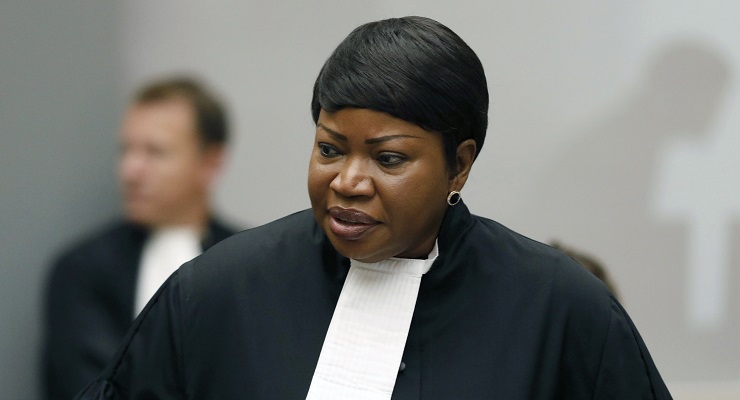
The International Criminal Court has found it has jurisdiction over war crimes committed in Palestinian territories, allowing a potential criminal probe which Australia tried to block to go ahead.
The decision has divided opinion. Swiftly condemned by Israel and the United States, it was welcomed by the Palestinian Authority and human rights groups here and abroad. And it’s one that further emphasises the Morrison government’s pro-Israel position, with Foreign Affairs Minister Marise Payne saying Australia has “deep concerns” about the ICC’s decision.
Why are we here?
The ICC’s ruling is just the latest chapter in a long and ongoing legal saga. In late 2019, after a five-year preliminary investigation, the ICC’s office of the prosecutor concluded there was sufficient evidence to begin an investigation into alleged war crimes committed by both the Israeli Defence Forces and Hamas in the West Bank, East Jerusalem and the Gaza Strip.
Israel, despite not being a member of the ICC, disputed whether the court had jurisdiction over the Palestinian territories. ICC chief prosecutor Fatou Bensouda asked the court’s pre-trial chamber to resolve that.
At that stage Australia was one of just seven state parties to the Rome Statute, the treaty governing the ICC, to intervene in the case. In an amicus brief filed with the court last February, Australia argued the court lacked jurisdiction to investigate on the basis that Palestine is not a state.
A majority of the ICC’s pre-trial chamber rejected that and held that the criminal investigation could continue on the basis that Palestine had already acceded to the Rome Statute in 2015.
But as the most recent decision notes, Australia did not object to Palestine’s accession at the time. Crucially, the pre-trial chamber said its judgment has no bearing on deeper issues of Palestinian statehood.
The reaction
There’s still a long way to go before any formal war crimes convictions — Bensouda is still studying the decision to determine the next steps. But so far response to the decision has been predictable. Israeli Prime Minister Benjamin Netanyahu accused the court of “anti-Semitism” and the Biden administration also came out against the decision.
In Australia, it has also divided opinion. It was condemned by Jewish organisations such as the Zionist Federation of Australia, whose president, Jeremy Leibler, said it was a “clear case of activism trumping common sense”.
“It is yet more proof of the politicisation of the ICC, which undermines its raison d’être, and will lead to more Palestinian refusals to negotiate with Israel, and thus make peace more remote,” he said.
Human rights groups, however, praised the ruling. The Australian Centre for International Justice said it was a “major breakthrough” in the fight against serious war crimes.
“Today’s decision is the result of a decades-long struggle led by Palestinian human rights defenders, victims’ communities and civil society organisations against a backdrop of daily violence and an aggressive amount of political pressure and lobbying,” its director Rawan Arraf said.
The Morrison government’s response serves as more evidence of the its pro-Israel approach to foreign policy.
“Australia does not recognise a ‘state of Palestine’, noting that matters relating to territory and borders can only be resolved through direct negotiations between Israel and the Palestinians,” Payne said.
As well as intervening in the war crimes case, the Morrison government considered recognising West Jerusalem as Israel’s capital, and the prime minister has flagged a commitment to fighting “anti-Israel” resolutions in the United Nations.
For now, though, that position has been repudiated by the ICC.
“Australia’s position has been rejected by the majority of the court. It is Australia who played politics and lost,” Arraf said.
“We hope Australia will now support the right of all victims to access justice equally and end selective support for justice and accountability.”








One would think that a group who do not allow anyone to forget their treatment 80 plus years ago, would be less aggressive towards those they are stealing land from especially when such a high number of people now called Israelis have come from all over the planet to displace Palestinians. And why that area when the founder of their religion was Iraqi born.
As for Morrison, he will never side with the victims being one who likes to kick people when they are down.
Nyetyahoo’s anti semitism claim is a trick ie anyone who condemns Israel for its human rights abuses is automatically accused of being anti semitic.
Once more supporting the US, another non-signatory. Wonder if the ICC has plans to investigate the war crimes committed by Australian troops? Given it’s gone ‘all quiet on the Afghan front’ perhaps they should.
At last, I hope there is some justice for Palestinians. When an oppressed group of people have not used the lessons of history and turn out to be oppressors themselves, there is no justice in the world.
Perhaps they didn’t learn the lessons of the schoolyard. Bullies often have been the victims of bullying themselves.
It’s important any atrocities are recorded into history, just as it was/is with The Holocaust.
Perhaps the Wiesenthal Centre could help with cataloguing?
I do wonder why Israel, and Australia for that matter, might not want an international court to investigate possible war crimes?
I am completely unable to imagine.